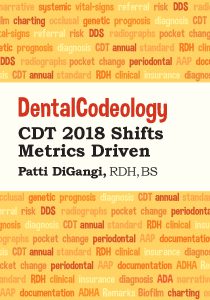
Periodontal disease starts with a biofilm-based infection that creates a wound that in turn, induces the inflammatory cascade responsible for the disease. This wound should be taken seriously!
A variety of tests are available to determine risk, genetics, and the specific pathogens involved with periodontal disease. OralDNA® Labs salivary diagnostic testing helps improve oral health outcomes and enables patients to make more informed choices regarding their professional treatment and at-home care. Both dental and medical codes are available for all OralDNA® salivary tests.
Periodontal Wound Care
Diabetic foot ulcers are the most common, disabling, and costly complications of diabetes. Like periodontal disease, they are chronic infections. Diabetic wounds are very difficult to heal and are often considered the beginning of the end for many patients. Yet, when patients present with inflamed periodontal wounds, they are often treated without considering the biology of the wounds and how this biology may affect wound healing.
A pioneering physician, Dr. Randy Wolcott of the Southwest Regional Wound Care Center in Lubbock, TX believed that there had to be a different way than continuing to take patients down a path leading to death. Dr. Wolcott took samples from various places in individual patient’s diabetic wounds. Rather than performing standard culture testing, he chose to send his samples for different testing. It was determined that the samples were largely multi-microbial biofilms.
A key to Dr. Wolcott’s wound care story is the decision not to accept current protocols as the only choice available. He recognized that standard culture samples are inadequate for identifying the bacteria in biofilms, which are multi-microbial. Polymerase chain reaction (PCR) testing, developed in 1983, is now a common and often indispensable technique used in medical and biological research labs for a variety of applications – including identifying the DNA of specific harmful pathogens.
Let’s parallel diabetic wound care to periodontal disease; the inflammation is the same just in a different location. Common pathogens directly cause periodontal disease and may increase the risk of cardiovascular disease, diabetes, stroke and birth complications. PCR testing is still not standard practice in dentistry but needs to become so. Dentistry can now find hidden oral pathogens that threaten our patients’ oral and systemic health.
OralDNA® Labs is a specialty diagnostics’ company designed to advance 21st century laboratory diagnostics in oral medicine and their easy-to-use salivary diagnostic tests exemplify that.
Dental and Medical Codes
Dental and medical codes are available for salivary diagnostic testing such as that provided by OralDNA® Labs. These codes have two important roles 1) third party benefit reimbursement and 2) as metrics for outcome-based best patient care. OralDNA® Labs provides updated guides to both medical and dental coding. 2018 OralDNA Insurance Coding Manual
Not every office is ready for medical cross-coding. Common Dental Terminology (CDT) 2018 includes a variety of dental codes to support salivary testing. In addition, the CDT 2018 Companion: Help Guide for the Dental Team includes a section ‘CDT Code to ICD (Diagnosis) Cross-Walk.’ This links commonly used CDT codes to one or more ICD-10 diagnostic codes.
These ICD codes can be placed on both the ADA Dental Claim Form and the HIPAA standard electronic dental claim transaction. (Item 34a – Diagnosis Codes) Up to four diagnosis codes can be reported on these dental claim forms. This information is important when the diagnosis may affect claim adjudication when specific dental procedures may minimize the risks associated with the connection between the patients oral and systemic health conditions.
Accurate coding can reduce obstacles leading to more testing that contributes to improving our patients’ health.
For more information on how to become an OralDNA Provider – scan HERE: 
- Testing and Coding Improving Patient’s Health - May 4, 2018
